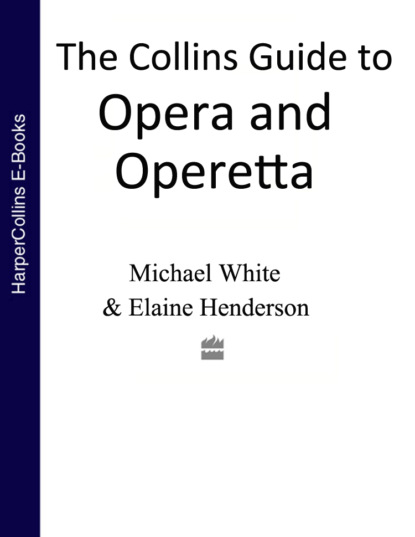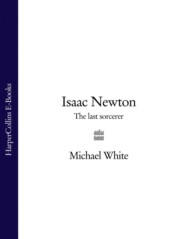По всем вопросам обращайтесь на: info@litportal.ru
(©) 2003-2024.
✖
The Collins Guide To Opera And Operetta
Автор
Год написания книги
2018
Настройки чтения
Размер шрифта
Высота строк
Поля
Arguably the greatest English composer and certainly one of the greatest opera composers of the 20th century, Benjamin Britten was born, raised and effectively spent his whole life on the Suffolk coast in small-town circumstances which influenced his work – most obviously Peter Grimes, Albert Herring and The Little Sweep, which are all set geographically within a few miles of where he lived. The sea is a recurring theme in his music, along with the world of sleep and dreams, the sacrifice of innocence, and the idea of the social outcast. But the determining factor behind almost all these subject choices was his homosexuality, which found expression – as both a source of anguish and of profound creative energy – just below the surface of so many scores. From Peter Grimes onwards, his operas usually have a leading tenor role written originally for his lifelong partner, Peter Pears. Even beyond the opera stage, Britten was principally a vocal rather than symphonic composer. Major scores include the War Requiem, several song cycles (of which the best known is the Serenade for Tenor, Horn and Strings), the early Variations on a Theme of Frank Bridge, and a superb sequence of string quartets.
Albert Herring (#ulink_ef3a4b0f-896b-5b47-828e-f7059984946c)
FORM: Opera in three acts; in English
COMPOSER: Benjamin Britten (1913–76)
LIBRETTO: Eric Crozier; after Guy de Maupassant’s story
FIRST PERFORMANCE: Glyndebourne, 20 June 1947
Principal Characters
Albert Herring, a greengrocer’s assistant
Tenor
Mrs Herring, his mother and owner of the greengrocer’s shop
Mezzo-soprano
Lady Billows, an elderly lady
Soprano
Florence Pike, her housekeeper
Contralto
Miss Wordsworth, a schoolteacher
Soprano
Mr Gedge, the vicar
Baritone
Mr Upfold, the mayor
Tenor
Superintendent Budd
Bass
Sid, the butcher’s assistant
Baritone
Nancy, the baker’s assistant
Mezzo-soprano
Synopsis of the Plot
Setting: Loxford, a Suffolk market town; spring 1900
ACT I The festival committee meet at Lady Billows’ house to choose a suitable local girl as Queen of the May. Unfortunately none of the young ladies proposed meets Lady Billows’ exacting moral standards, so a revolutionary solution is put forward: the committee will elect a May King instead, and the honour falls on Albert Herring. Albert, meanwhile, is working in his mother’s shop where he is being roundly teased by Sid and Nancy for his innocence and his subservience to his domineering mother. Lady Billows and the committee arrive to give him the good news of his election as May King. Albert scoffs at the notion but his mother, her eye on the £25 prize, shouts down his protests.
ACT II The day of Albert’s coronation has arrived and, after a church service, he is entertained, fêted and offered advice by everyone from the schoolchildren to Lady Billows. Sid and Nancy, meanwhile, have spiked Albert’s lemonade with rum and, the formalities over, he drains his glass as the festivities begin. By the evening Albert is thoroughly tipsy and, encouraged by Sid and Nancy, he sets off in search of some fun.
ACT III It is the afternoon of the following day, but Albert has not returned home. His orange-blossom May King crown has been found, crushed, on the road. Everyone assumes he is dead, gathering dejectedly at Mrs Herring’s shop to offer condolences. Suddenly Albert’s head appears round the door – and the ‘mourners’ turn on him and berate him for his behaviour. Albert’s account of his drinking and fighting scandalises the worthies, who leave in disgust, but is applauded by Sid and Nancy who recognise Albert’s new-found emancipation.
Music and Background
This is a comedy, as alive with musical jokes (like the love-potion motif from Wagner’s Tristan und Isolde that accompanies the drinking of the lemonade) as with theatrical high spirits. Much of the writing parodies the Englishness of English music, with a virtuosic brilliance in the depiction of character and an extraordinary resourcefulness in what it extracts from a mere thirteen instruments in the orchestra.
Highlights
The love music for Sid and Nancy in Act I; the entire May King Scene in Act II; and the mock threnody ‘In the midst of life is death’ in Act III.
Did You Know?
This quintessentially English piece began life as a French short story called Le Rosier de Madame Husson.
Recommended Recording
Sylvia Fisher, Peter Pears, April Cantelo, English Chamber Orchestra/Benjamin Britten. Decca 421 849-2. A period piece but still fresh, and a fine record of British singing in the 1960s.
Billy Budd (#ulink_762082a4-c8c9-524e-809c-bad1951686c3)
FORM: Opera in two acts; in English
COMPOSER: Benjamin Britten (1913–76)
LIBRETTO: E.M. Forster and Eric Crozier; after Herman Melville’s story
FIRST PERFORMANCE: London, 1 December 1951
Principal Characters
Billy Budd, an able seaman
Baritone
Captain Vere
Tenor









